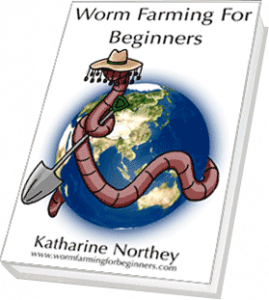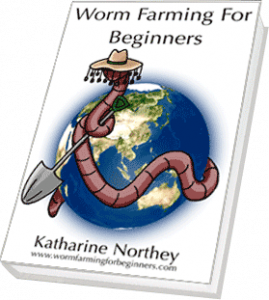Vermicompost/ vermicomposting.
What is vermi-compost?
– Vermi-compost is the end product from composting with worms.
– Vermi-compost contains castings, broken down organic matter, bedding, worms, worm cocoons, and other organisms.- (Nancarrow 98).
Vermi-compost is a intensely rich & micro bacteria loaded product that earthworms & compost worms excrete when they digest their food .
Vermicomposting utilises composting worms to convert organic wastes into high quality compost. This is one of the way s of composting kitchen scraps into a valued garden media.
Many gardeners use vermicomposting systems for all their garden and kitchen waste, reducing their garbage by up to a third and providing their own organic fertiliser for gardens on verandas and rooftops to grow their own organic produce.
Castings contain:
– A neutral pH of 7 no matter what the diet of the worm.
– (“If you are looking for worms, you are in the right place!” http://members.tripod.com/-wormigrow/)
– Beneficial bacteria, plant growth hormones, vitamins, enzymes, amino acids, selenium, organic carbon.
– 5 times the available nitrogen, 7 times the available potash, and 1 1/2 times the available calcium than found in good top soil. (“Earthworms as a natural resource” Chapman, Ingrid.)
– Humic acid: which is a beneficial fungal activator.
– Fulvic acid: which is a beneficial bacteria activator.
– Auxins: which is an organic substance characterised by its ability to promote growth, particularly in roots. It is an active ingredient in
rooting compounds.
– Not a single trace of E.coli, salmonella or other pathogens as they are destroyed due to the competition from the active micro
flora and intestinal secretions. Most of our human pathogens are anaerobic and cannot survive in the aerobic environment created by worms.
There’s nothing better to put in your garden!
For ALL the information you need to know about vermin-composting simply purchase:
Worm Farming for Beginners.
Red Wiggler Worms / Red Worms.
Generally the worms used for composting are called red worms:
Eisenia Andrei/fetida or Lumbricus rubellis. These worms are ideal for composting as they are ferocious eaters, surface dwellers and prolific breeders.They love to live in close, highly populated environments and don’t burrow deeply into their housing structures. If you hear the term “red wigglers or Red Worms” you know your purchasing the right type of worm. There are other types of worms that can be used:
– African night crawlers: Eudrilus eugenia, but as the name suggests, if they’re not happy they WILL crawl away in the night.
– Gardeners friend worms: Amynthus gracious/corticus.
– Tiger worms: Eisenia fetida.
– Blues: Perionix excavatus/spenceralia.
Garden earthworms are not suitable for composting so please leave them be in the garden so as they may tunnel deeper down in the soil to help the garden.
Red wiggler worms can process large amounts of organic matter and under perfect situations can eat their body weight each day. They also reproduce rapidly and are tougher and quicker breeders. Than other types of composting worms.
Red wigglers can be used for feeding other “pets” as well:
Feeding ;
- Pet Birds
- Turtles
- Iguanas
- Aquarium Fish
- Pond Fish
- Salamanders
- Snakes
- Frogs
For more information and practical advice/tips on how to care raise Red wigglers/Red Worms-
Check out my new book! Worm Farming for Beginners.
Ideal for all worm farmers out there! You’ll never need to visit a website for information again!!
Earthworm Castings.
Worm castings are recognised throughout the world as the richest natural, chemical free plant food known to man. (WonderwormUk.com, 2008)
Castings are odourless, non toxic, and are suitable to use on all plants, including delicate seedlings.
Earthworms don’t digest the organic matter that they “eat”. They are actually digesting the micro-organisms that are feeding on the organic waste matter. When they excrete the castings, there are now up to eight times as many beneficial micro-organisms as there were previously. If there were disease pathogens present on the organic matter digested by the worms, it is killed off by active micro-flora and intestinal secretions in the worms digestive system. In addition, the vermin-compost contains many additional minerals (compared to that of regular soil) that aid in plant growth, and are rich in humic and fulvic acids which balance pH of the soil.
Castings contain:
– A neutral pH of 7 no matter what the diet of the worm. – (“If you are looking for worms, you are in the right place”– http://members.tripod.com/-wormigrow/)
– Beneficial bacteria, plant growth hormones, vitamins, enzymes, amino acids, selenium, organic carbon.
– 5 times the available nitrogen, 7 times the available potash, and 11/2 times the available calcium than found in good top soil.
– Humic acid: which is a beneficial fungal activator.
– Fulvic acid: which is a beneficial bacteria activator.
– Auxins: which is an organic substance characterised by its ability to promote growth, particularly in roots. It is an active ingredient in rooting compounds.
– Not a single trace of E.coli, salmonella or other pathogens as they are destroyed due to the competition from the active micro flora and intestinal secretions. Most of our human pathogens are anaerobic and cannot survive in the aerobic environment created by worms.
– A “slow release” quality. After digestion, the undigested material-moves through the alimentary canal of the worm, a thin layer of oil is deposited on the castings. This layer erodes over a period of 2 months. So although the plant nutrients immediatelyavailable, they are slowly released to last longer.
– (“If you are looking for worms, you are in the right place” http://members.tripod.com/-wormigrow/)
–
By adding worm castings to your existing garden soil you will be actively helping plant growth by:
– Increasing the organic matter (humus) content. This will make your soil less likely to become compacted.
– Increasing the water retaining qualities. Castings can retain up to 9 times their weight in water.
To find out more on how worm castings improve your soil simply purchase:
“Worm Farming for Beginners”


